Feast Days (Christian Holy Days) From A Pro-Torah Perspective:
Have God’s Feast Days (Sabbaths) really been ‘done away with’? Why would Jesus (Yeshua) want to get rid of the very feast days that point to His first and second coming? Walk through the Christ centered significance of the holidays. Investigate Leviticus 23 from a pro-torah (pro-law) perspective to review: The Sabbath, Passover, Feast of Firstfruits, Feast of Weeks (Pentecost), Feast of Trumpets, Day of Atonement, and the Feast of Tabernacles. Learn about God’s feast days from a pro-torah perspective.
Christian Holidays (Holy Days) By Ronald L Dart
Everybody knows there are holidays mentioned in the Bible. But what are they? The holidays that are mentioned in the Bible are usually dismissed as Jewish. But did you know the New Testament Church still celebrated these holidays after Christ’s ascension? Walk through the Christ centered significance of the holidays in your Bible. This series goes in depth to each of the ‘Feasts of the Lord’, ‘Holy Days’, or ‘Sabbaths’ as listed in Leviticus 23 to include: The Sabbath, Passover, Feast of Firstfruits, Feast of Weeks (Pentecost), Feast of Trumpets, Day of Atonement, and the Feast of Tabernacles. Dart also discusses Christmas and Easter, addressing the questionable origins of these man-made traditions.
A Fresh Look at the Feast of Tabernacles
Why do we observe the Feast of Tabernacles? Is it just in commemoration of Israel and their exodus? What is the symbolism – past, present, and future? Temporary dwellings – searching for the city to come. When will we be home? A very powerful sermon about what God is doing and our role in it.
God’s Festivals in Scripture Part 2: Fall Festivals
The second volume of God’s Festivals in Scripture and History examines the Fall Feasts of ancient Israel: Trumpets, Atonement , and Tabernacles. The study shows how these feasts typify the progression leading to the consummation of redemption.
God’s Festivals In Scripture Part 1: Spring Festivals
God’s Festivals In Scriptures in History challenges Christians to bring about worship renewal by developing a church calendar patterned after the religious calendar God gave to Israel. Such a calendar would celebrate during the course of the year the redemptive accomplishments of Christs first and second Advents. We cannot preach the whole Bible in one sermon. We cannot celebrate the whole story of redemption in one Sabbath. A church calendar patterned after the calendar of Israel can help to do justice to all the great saving acts of God. The first volume on The Spring Feasts examines Passover and Pentecost historically, typologically and theologically. It shows how the Springs feasts of Israel helps us understand the redemptive accomplishments of Christ’s First Advent.
The Thread: By Ronald L. Dart
There is a thread that runs from the beginning to the end of the Bible that few seem to understand. There are specific points along that thread where God chose to act in history. In the Bible, these are called, “the appointments” of God. Because they occurred in connection with events in Jewish history, the days took on the meaning of those events. But then came Jesus, and the great events of his life and work also took place on these appointments. Moreover, the future plans of Christ are also reflected in these appointments along the thread. Traditional beliefs say that the festivals came in with the old covenant and went out with the cross. But as you follow The Thread, you will find that explanation will not hold.
The feasts we find in the Bible are transcendent, and from the very beginning pointed, not so much at Israel’s history, but at the work and ministry of Jesus Christ in history. As you pick up The Thread and follow it, things will become clearer. The Festivals of Jehovah mark places where we can most easily find The Thread. You will understand how each of God’s holidays points to Christ and impacts your life. Understanding this will simplify the Bible and deepen your understanding.
Feast of Trumpets and the resurrection of the dead
There is no idea more central to the Christian faith, than the resurrection of the dead, and yet in those early years of Christianity, it had already been called into question, in the church! It’s in the great 15th chapter of Paul’s first letter to the Corinthians that he wrestles with a group that claimed there was no resurrection from the dead. I presume, they still held the doctrine of the ‘Kingdom of God,’ but for them it was a physical kingdom. It was something that a lot of Jews believed in and expected. They expected the Messiah to come, conquer the Romans, set up a rule of God on this earth in the physical sense.
Common objections to the Feast Days
A thorough examination of 3 scriptures commonly used to claim the Holy Days have been done away. Galatians 4:9-10, Ephesians 2:15, Colossians 2:14-16. You cannot make a distinction in the law (including The Holy Days, Sabbath, the law of Moses, the ceremonial laws, and even the Ten Commandments), throwing some out and keeping others; they all stand or fall together. Subjects: The temple as a stage for God’s plan; nailed to the cross; Numbers 5 blotting out; Numbers 6 vows; “where God places His name”.

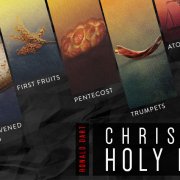
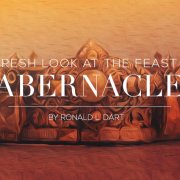
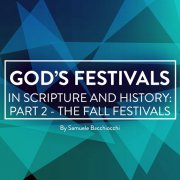
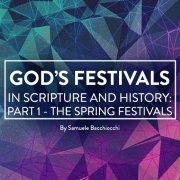
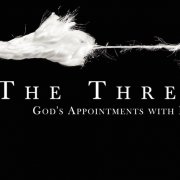
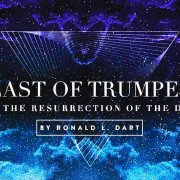
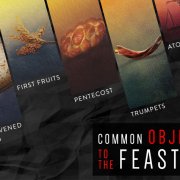
Recent Comments: